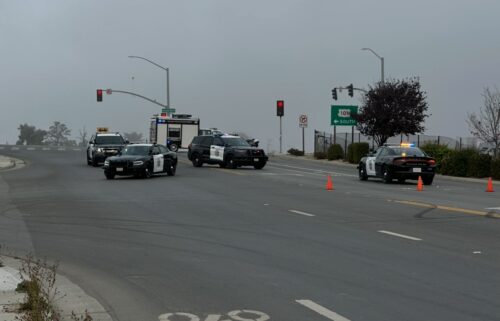Finding alternatives to opioids on the Central Coast
Just last weekend we showed you how big the opioid epidemic is on the Central Coast with huge turnouts for drug take back day.
Recognizing this issue, local physicians have developed a new approach to pain management in hopes of curving this widespread problem.
117,535.
That’s the number of prescription opioid claims in Monterey and Santa Cruz counties combined.
That’s 117,535 people at risk for falling victim to addiction, or even worse.
Though every story is different, doctors tell me they have an idea of how this outbreak started.
“10-20 years ago, we would give people when people had pain we would give them opioids and if it didn’t work so well, we’d increase the dose and i think we’re increasingly realizing that that wasn’t a good strategy,” says Dr. William Morris, Physician at Dominican Hospital.
“A lot of us were instructed to prescribe long acting oxycontin and that’s not really affective, it actually may have created some of the problem with addiction issues because the narcotics actually sit on your brain and you need them as a medication. You can go through withdrawal just like you could from alcohol or any other medication,” says Dr. Nicholas Abidi.
So what now?
Doctors are putting together the puzzle pieces and hosting events like this. A symposium on “current developments in pain management strategies” helps health care providers decide how to use alternatives to the traditional pain killer.
“There are other medications which actually address pain better at the root cause and the chemical cause frankly the inflammatory pathways or the pain receptors in the brain as we understand more neurochemistry, we’re actually treating the problem,” says Abidi.
But sometimes there is no other choice. And when that happens…
“I mean opioids are a great medicine. If someone’s going to cut me open i want to be able to be given an opioid. I think the key is recognizing when when they’re no longer working or when we’ve given enough,” says Morris.
“Managing their pain is very difficult, so we’re trying to take this interdisciplinary approach to manage the pain and manage it safely,” says Hari Bartlett, Nurse at Dominican.
And while doctors are having these important discussions, there may be another that needs to be had.
“Parents have to understand that there is an issue that we have to address and is there a gateway problem? And is there permissiveness? So that’s what we have to decide as a family, or as a society,” says Abidi.
Today’s symposium appropriately comes a few days after Monterey County officials announced the county is working with dozens of others in California to take legal action to help mitigate and prevent current and future opioid problems.

